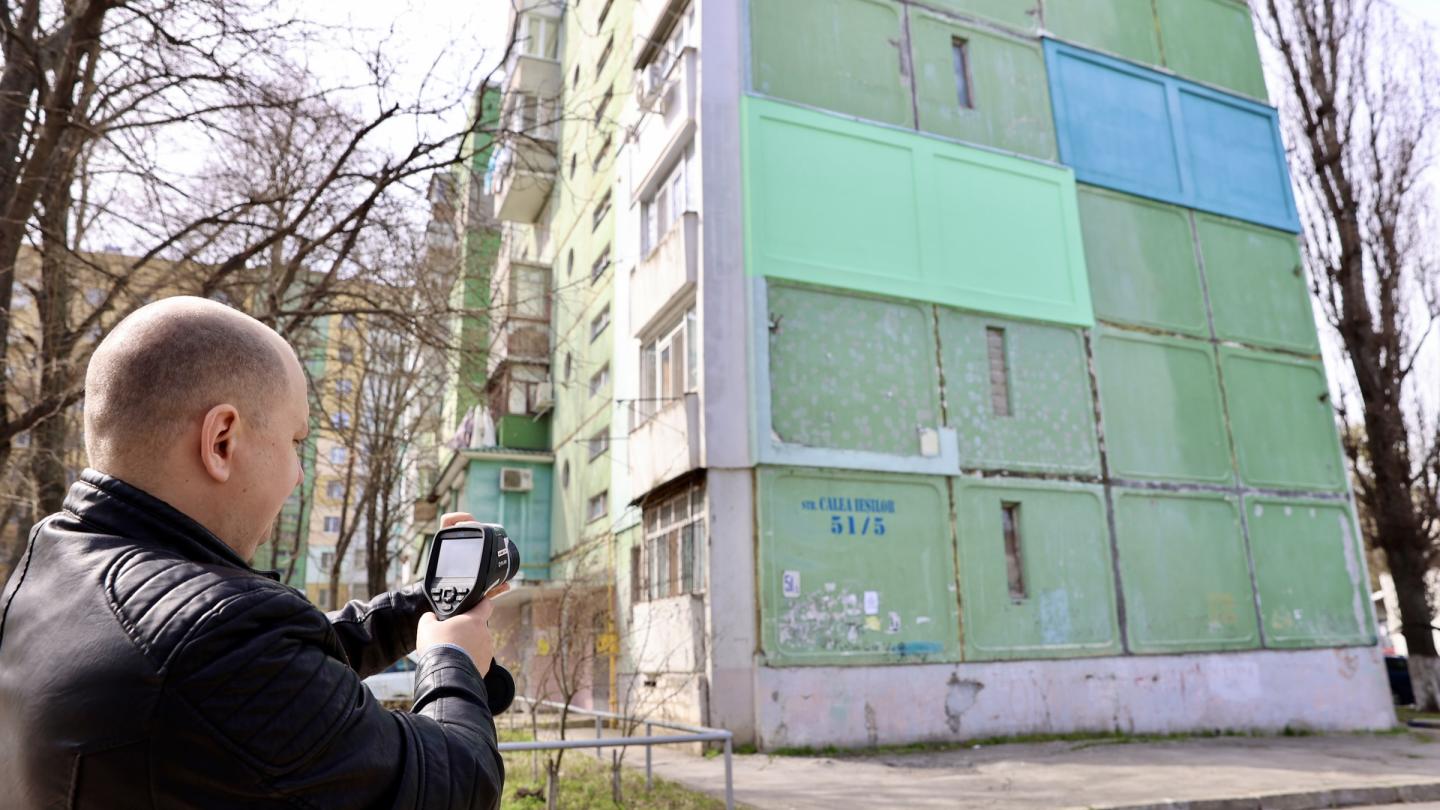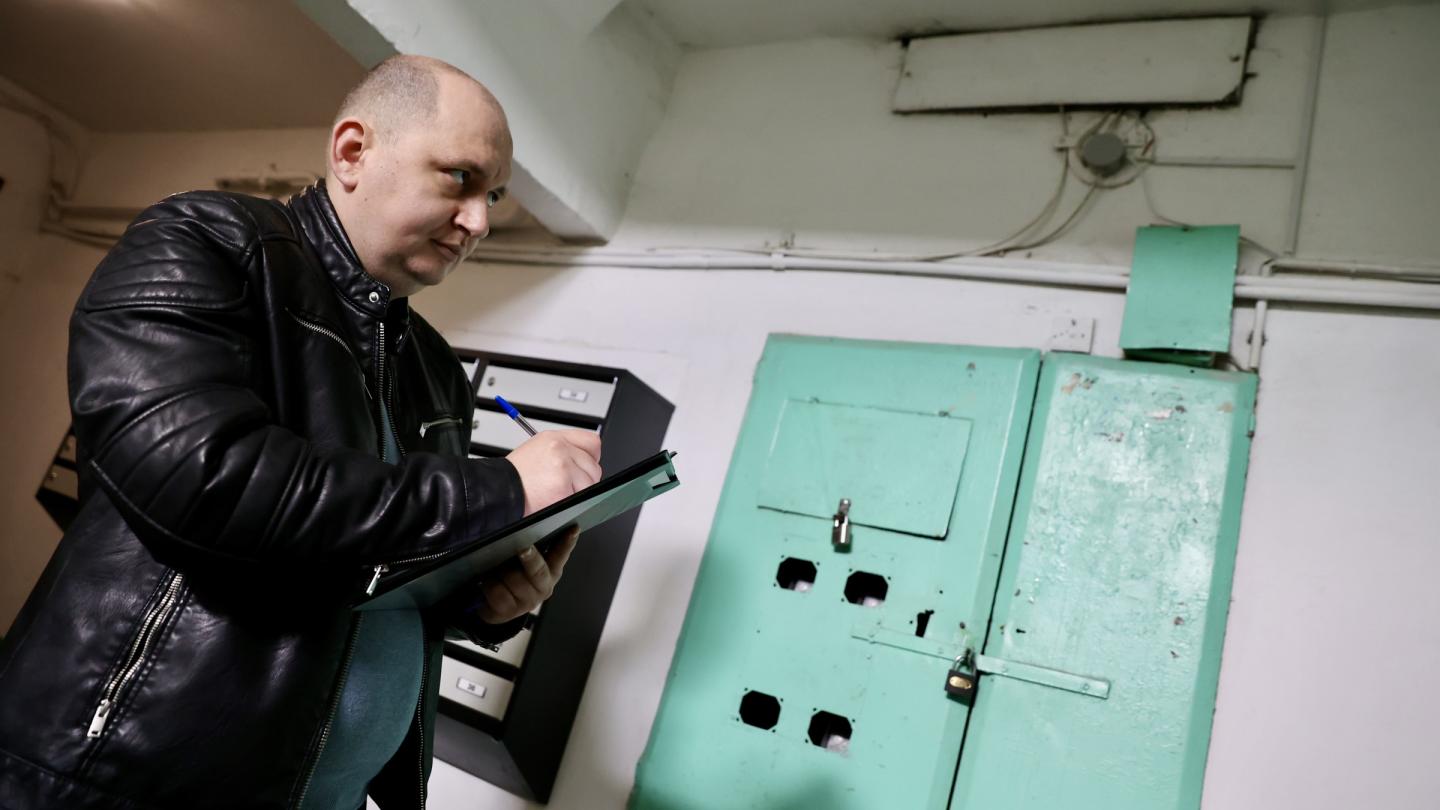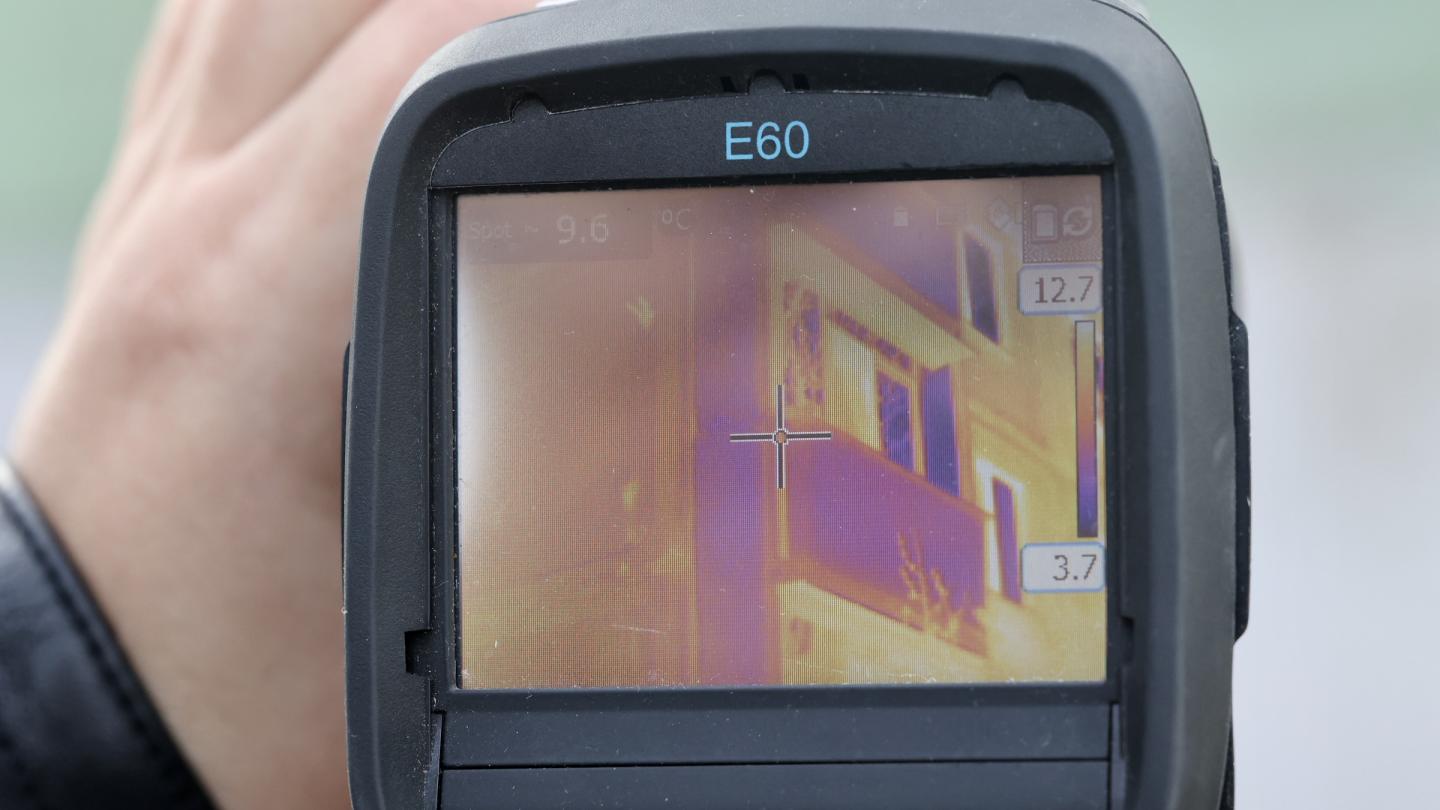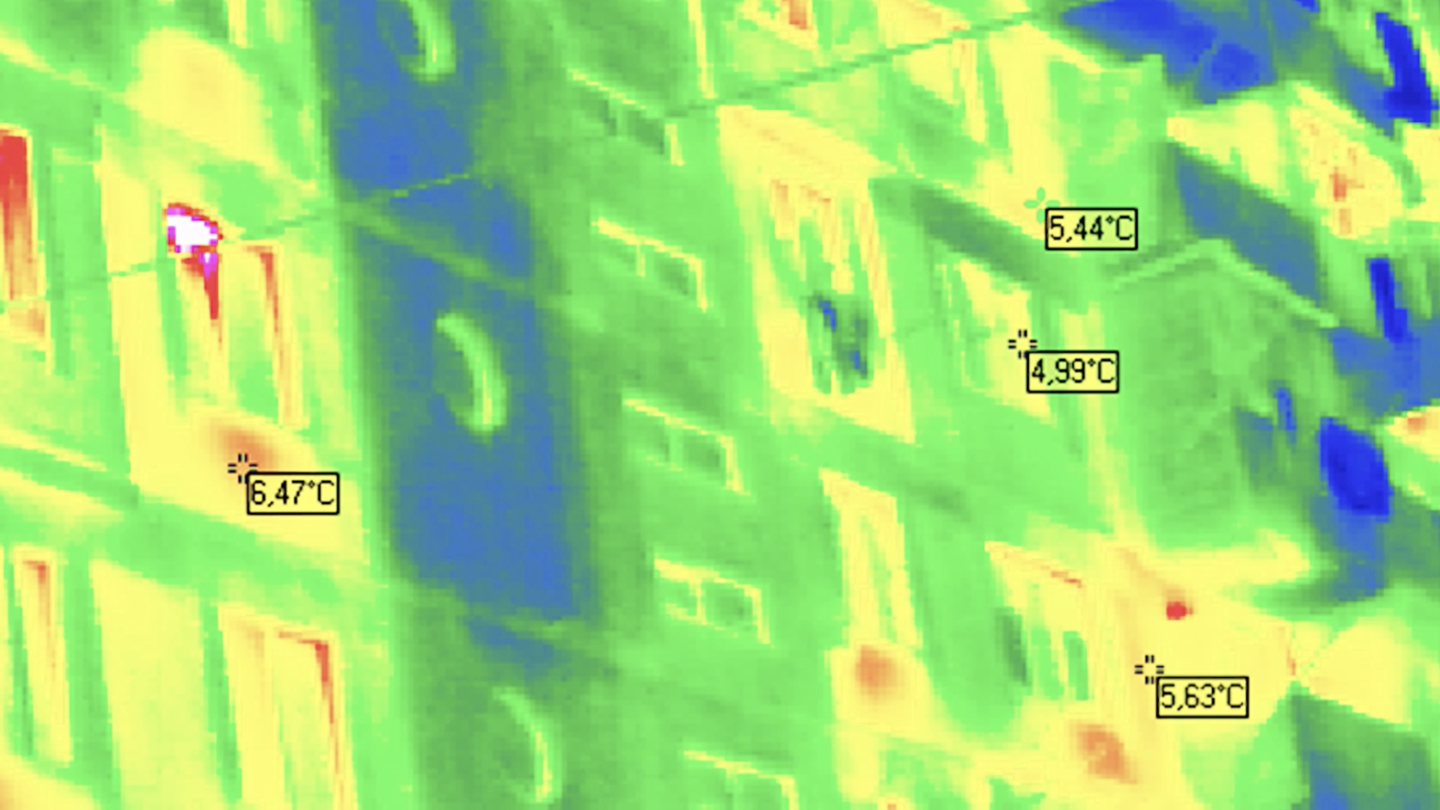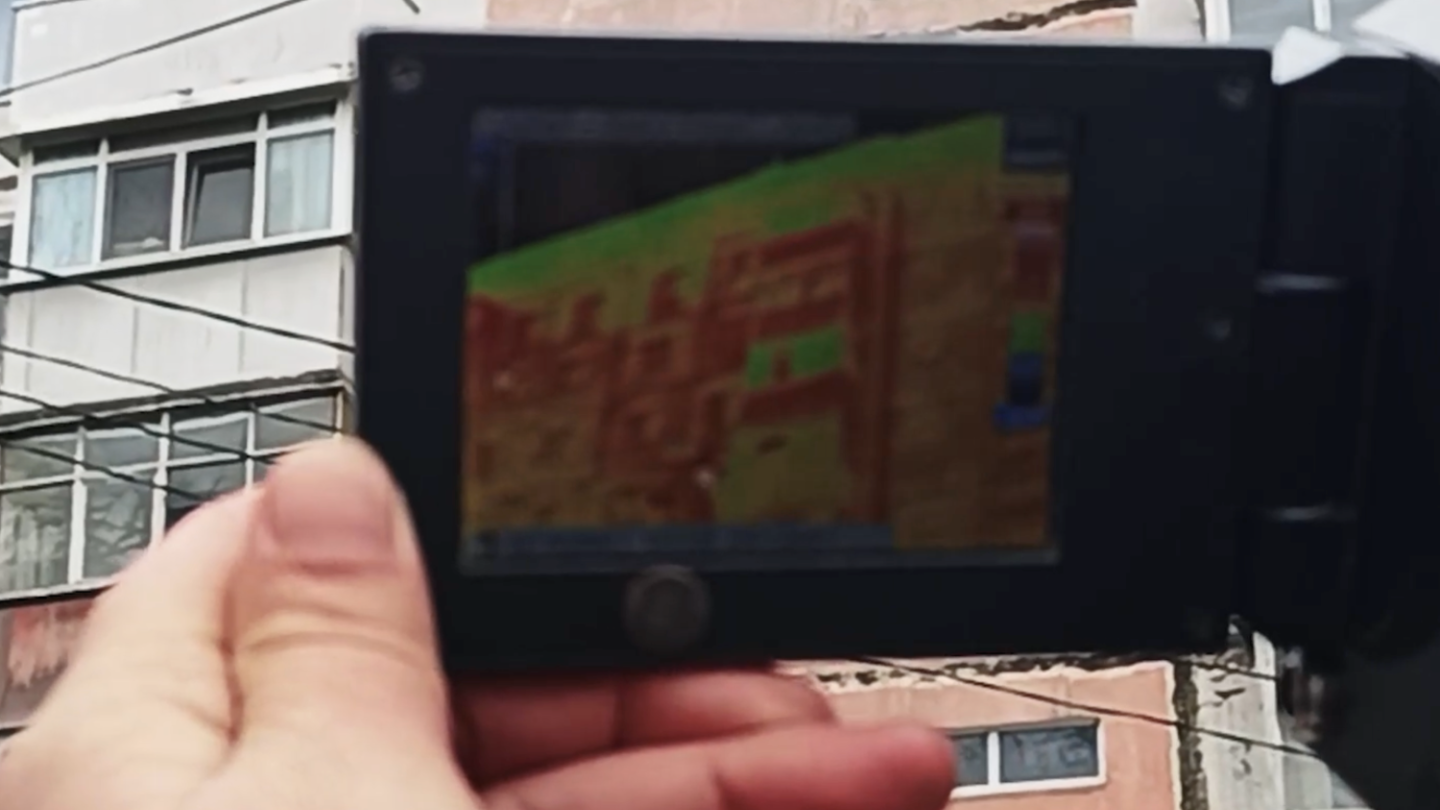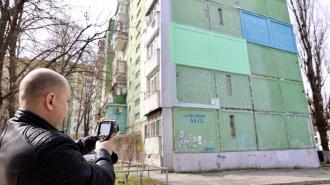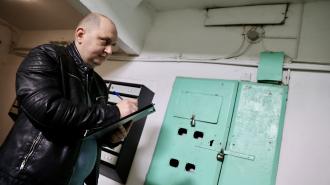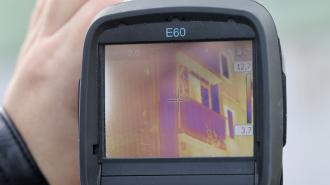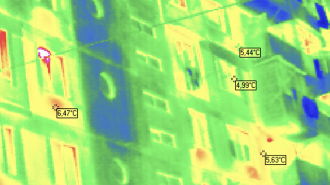Energy audit - an investment in the future for lower bills and increased thermal comfort
April 4, 2024

The European Union and UNDP Moldova are supporting 25 blocks of flats in the cities of Chișinău, Bălți, Strășeni and Ceadîr-Lunga and 6 district hospitals to develop energy audits, based on which energy efficiency projects will be implemented. As a result, better conditions for residents and patients and reduced utility bills will be created.
The energy audits in total amount of approx. US$200,000 were financed through the programme "Addressing the impacts of the energy crisis in the Republic of Moldova", funded by the EU and implemented by UNDP.
The energy audits are a first step to access funding and the audited multi-level residential buildings have been selected for the testing phase of the Residential Energy Efficiency Fund in Moldova, which will invest over 200 million lei in energy efficiency measures over the next few years.
For the planned implementation of the energy efficiency measures, 70% of the total amount would be non-reimbursable funds and 30% would be the contribution of apartment owners. As a result, the selected residential buildings will significantly reduce their energy costs and generate annual savings of over 17 million lei or the equivalent of about 6 million kWh.
Energy audits - the first step to securing investment
Energy audits are the complex process of assessing the building's energy parameters and developing recommendations for rationalising energy consumption. An energy-efficient building consumes less energy (heat and electricity), is better priced on the housing market and generates lower energy bills. The energy audits carried out for the housing associations and the six hospitals identified the main problems in the buildings and the priority energy efficiency measures.
"We are analysing heat and electricity consumption. On the thermal side we determine heat losses through walls, ceilings, windows. We draw attention to the building envelope structure. Finally, we propose energy efficiency measures and the use of renewable energy sources, such as thermo-insulating the walls, the attic, the floor or the basement, changing the exterior joinery, changing the old machinery that consumes much more electricity than more modern equipment, changing the LED lighting fixtures, changing the source of thermal energy production. We also analyse the economic side, we determine the investments, the savings and the payback period of these investments on the basis of which we come to conclusions on the measures that can be implemented," explains Denis Isacov, energy auditor.
Condominium owners' associations are to meet and decide by ⅔ of the votes on energy efficiency measures proposed by experts. In general, this involves insulating the facade, the roof/ceiling/technical floor, the basement, replacing the old joinery, changing the heating distribution system from the traditional vertical one to a more modern and efficient horizontal one, with the installation of individual meters for each apartment, which also involves ensuring the supply of hot water and, as a result, doing away with boilers, implementing other proposals to improve the lighting system, ventilation, etc.
Svetlana Iacub, the manager of a block of flats on Calea Ieșilor în Chișinău, says that the absolute majority of tenants have recently adopted five of the nine measures proposed in the energy audit. In the case of the block, the roof has been replaced with their own money in recent years, and with the support of the United Nations Development Programme, the Global Environment Facility and Green City Lab Moldova, they have switched to a horizontal heat distribution system. Even though tenants are already receiving lower heating bills, the audit showed that more than half of the heat loss currently occurs through the external walls, 17% - through doors and windows, mainly in communal spaces, 11% - through the roof and 9% - through the floor.
The measures proposed for the Calea Ieșilor building would cost about 4.2 million lei, with a payback period of up to 11 years.
"We have tenants who would pay the whole amount needed for heating at once, even low-income people are willing to contribute. We realised long ago that the next step we had to take was to insulate the facade, and there were even attempts to collect money," says Svetlana Iacub, who took over the management of the association after 20 years in Spain.
"We understand that the block is no longer managed by some state entity, as during the Soviet Union, but by the owners' association. Now there are possibilities to insulate the walls with discounts. It would be a shame to miss such an opportunity. We hope to be an example house and then the others will follow," adds Svetlana Iacub.
Low-income families will be able to get compensation for energy efficiency investments
“After the decisions of the condominium owners' associations, the tendering stage will follow for the elaboration of the detailed engineering design, so that by autumn the works on the building sites can start,” says Ion Muntean, director of the National Center for Sustainable Energy.
"Low-income families enrolled in the compensation programme will also be able to receive additional compensation for this purpose from the Energy Vulnerability Reduction Fund. In this context, families wishing to receive subsidies in the future should register on the platform compensations.gov.md," Muntean said.
"The final goal of the actions to prepare energy audit reports is to identify priority energy efficiency measures in each of the 25 multi-level residential buildings, taking into account the need to: identify energy saving opportunities, justify investments, promote technological innovation, reduce operational costs. Therefore, we believe that the support provided to the central public authorities will contribute to achieving nationally agreed targets and commitments in the field of energy efficiency and renewable energy, as well as to increased capacity to leverage financial resources allocated by development partners," said Dorin Andros, UNDP consultant in the programme "Addressing the impacts of the energy crisis in Moldova".
With the support of the EU and UNDP Moldova, energy audits have also been carried out in six district hospitals and in a number of family-type children's homes.
The EU-UNDP programme has also organised a series of training sessions for energy auditors, donated equipment to the Technical University of Moldova, where specialists in the field are trained, and developed training programmes on energy efficiency in industry.
Also in terms of energy efficiency, under the programme "Addressing the impacts of the energy crisis in the Republic of Moldova", four associations of apartment owners in Chișinău have changed their central heating systems to new horizontal ones. Two of them have also benefited from energy audits.

According to Law 139/2018 on energy efficiency, "energy efficiency projects financed in whole or in part from the state budget or the budgets of local government authorities, as well as projects financed by the supporting public institution, are required to have an energy audit".
"After last year's amendment of the law, it is stipulated that energy efficiency is a national priority. Thus, this area needs to be supported both technically and financially. Carrying out an energy audit in the three directions established under the legal framework - buildings, industry and transport - allows the identification and subsequent nationwide financing of energy efficiency measures and the generation of energy savings," said Mihail Lupu, UNDP consultant in the programme "Addressing the impacts of the energy crisis in Moldova".
In addition to savings on bills, the interventions suggested by the auditors will lead to better service quality and lower CO2 emissions.

 Locations
Locations